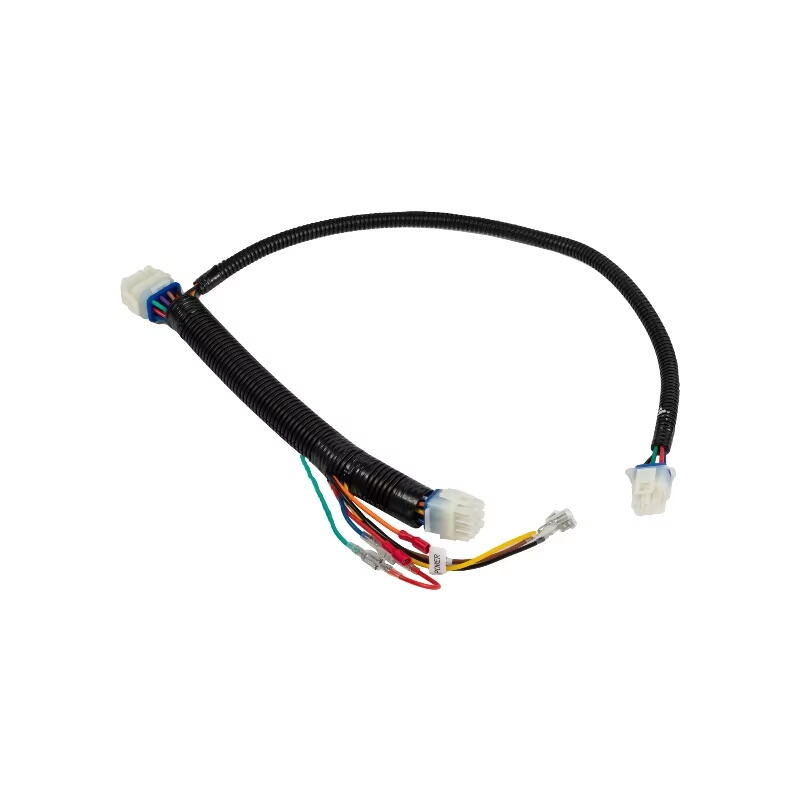Key Features of a Quality Battery Cable for Automotive Use
When it comes to maintaining a reliable and efficient vehicle electrical system, choosing the right battery cable is essential. The quality of the battery cable can significantly affect the performance and longevity of your vehicle's electrical components. A high-quality battery cable ensures that the power flows consistently from the battery to the vehicle’s electrical systems, reducing the risk of electrical failures. This article will discuss the key characteristics that define a quality battery cable and why they are crucial for automotive use.
Conductivity and Material Quality
Importance of High-Conductivity Materials
One of the most important factors when selecting a battery cable is the material used for its construction. Copper is the most common and preferred material for automotive battery cables due to its excellent conductivity. Copper cables allow for minimal resistance, ensuring a steady flow of electricity from the battery to the car's electrical system. This results in faster start-ups and better overall performance.
While copper is the top choice, some battery cables may also use aluminum. Aluminum is lightweight and cheaper, but it doesn't conduct electricity as well as copper. Aluminum cables are more commonly used for lower-powered applications or where weight is a significant factor.
Stranded vs. Solid Core Cables
Another consideration is the type of cable core. Battery cables can be made with stranded or solid wire cores. Stranded cables are typically more flexible and resistant to breakage compared to solid core cables. This flexibility is important in automotive applications, where the cables need to navigate through tight spaces and withstand movement without losing their conductivity.

Durability and Insulation
Insulation Material and Protection
A quality battery cable must have strong, durable insulation to protect the wires from physical damage, corrosion, and environmental factors. The insulation material also plays a significant role in preventing short circuits and ensuring safety. Common insulation materials include PVC (Polyvinyl Chloride) and XLPE (Cross-Linked Polyethylene). These materials provide excellent resistance to temperature extremes, chemicals, and abrasions, ensuring that the cables last longer, even in harsh conditions.
Resistance to Corrosion
Corrosion resistance is another crucial factor for battery cables. Over time, exposure to moisture, road salts, and other environmental factors can cause the cables to corrode, leading to poor electrical connections and potentially dangerous situations. To combat this, high-quality battery cables feature tinned copper or other anti-corrosive coatings that extend the life of the cable and ensure the electrical system remains in optimal condition.
Proper Gauge and Sizing
Determining the Right Gauge for Your Vehicle
The size or gauge of a battery cable plays a crucial role in determining how much current can safely pass through the wire. For automotive use, selecting the correct gauge is essential to avoid overheating or power loss. Cables that are too small for the application will have higher resistance, which can result in voltage drops and strain on the battery and alternator.
Typically, for passenger vehicles, 4 AWG (American Wire Gauge) or 6 AWG cables are sufficient for starting the engine and powering the electrical systems. However, high-performance vehicles or vehicles with additional power-hungry accessories may require thicker cables such as 2 AWG or 0 AWG for optimal performance.
Length of the Cable
The length of the battery cable is another factor that can affect its efficiency. Longer cables have more resistance, which can result in voltage loss. Therefore, it’s essential to use cables that are long enough to connect the battery to the vehicle’s electrical system but not excessively long, as this could reduce performance. Always measure the required cable length carefully to ensure optimal performance.
Safety Features
High-Temperature Resistance
Automotive battery cables are often exposed to high temperatures due to engine heat. High-quality cables are designed with insulation that can withstand extreme temperatures without degrading. This helps prevent the cable from melting or becoming brittle, which could lead to dangerous short circuits. A good battery cable should have a temperature rating that matches or exceeds the conditions inside the engine bay.
Enhanced Safety Connectors
In addition to high-quality cables, the connectors at both ends of the battery cable should also meet safety standards. Copper or brass connectors are ideal as they ensure a solid, corrosion-resistant connection. It’s also important to make sure that the connectors fit securely and are properly insulated to prevent accidental contact with other parts of the vehicle’s electrical system.
Flexibility and Ease of Installation
Flexible Cables for Easy Routing
While battery cables need to be durable and able to handle significant power loads, they also need to be flexible for easy installation and routing. Flexibility ensures that the cable can be easily routed around the engine compartment and through tight spaces without causing damage. Stranded copper battery cables are often more flexible and easier to work with, making installation simpler and faster.
Pre-Installed or Custom-Length Options
Another factor to consider is whether the battery cable comes pre-installed with connectors or if you need to cut it to the required length. Many battery cables come in various lengths, but some applications may require a custom cable size. In such cases, selecting a battery cable that can be easily cut to length is ideal. Ensure that the cable is properly terminated with the correct connectors to ensure a secure and reliable connection.
Cost-Effectiveness and Longevity
Balancing Quality and Price
While it's important to choose a high-quality battery cable, it's also essential to balance cost with performance. Premium battery cables may come with a higher price tag, but the long-term benefits, including improved performance, durability, and safety, make them a wise investment. In contrast, cheaper cables may need frequent replacement, which can lead to higher long-term costs.
Longevity of Battery Cables
High-quality battery cables are designed to last longer than standard alternatives. They resist corrosion, handle higher currents, and maintain flexibility, all of which contribute to a longer lifespan. Choosing durable cables means fewer replacements and a lower total cost of ownership over the lifetime of your vehicle.
FAQs About Quality Battery Cables
How do I know if my battery cable is the right size?
To determine the correct size for your vehicle, consult your car’s manual or refer to standard automotive wiring charts that provide cable size recommendations based on the vehicle’s make and model.
Can I use any battery cable for my car?
No, you should always use battery cables that are specifically designed for automotive use. These cables are made to withstand high currents and the harsh conditions found in vehicles.
How often should I replace my battery cables?
Typically, battery cables last for many years, but you should inspect them periodically for signs of wear, corrosion, or damage. If you notice any issues, it’s best to replace them immediately to avoid electrical failures.
Are there different types of battery cables for different vehicles?
Yes, different vehicles may require different battery cables based on their electrical needs. High-performance or commercial vehicles often require heavier-duty cables to handle larger power loads.

